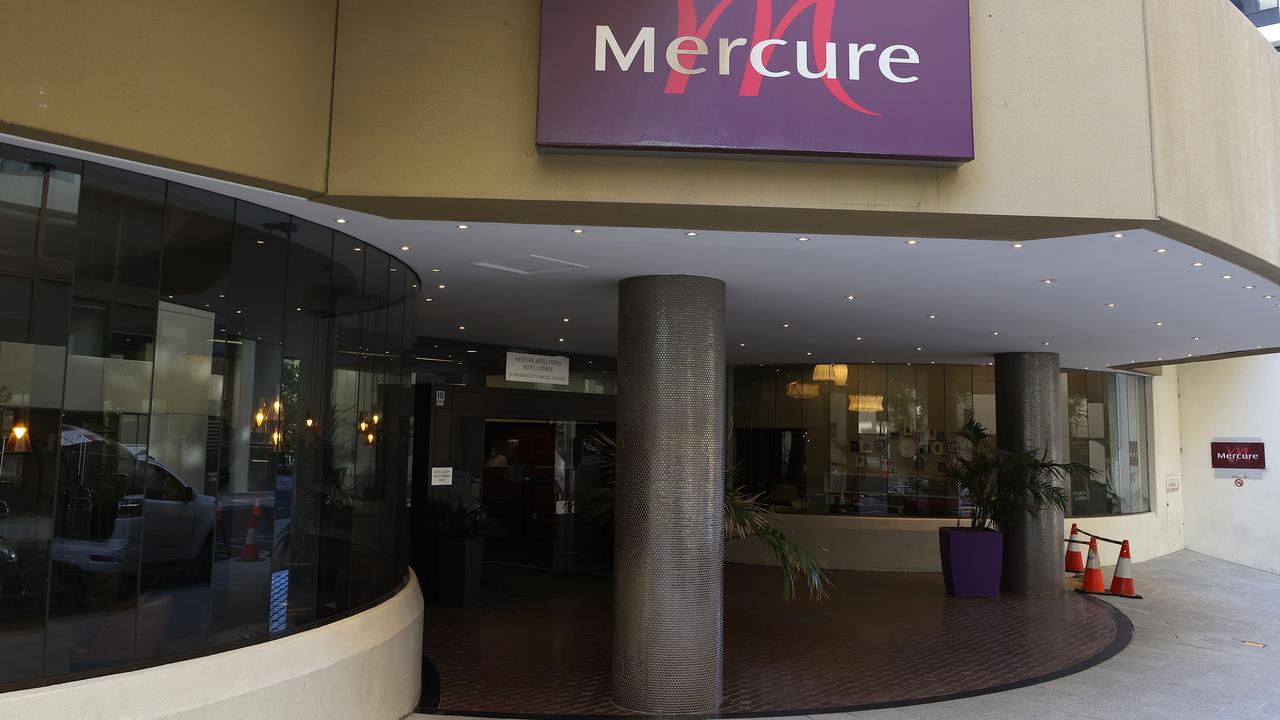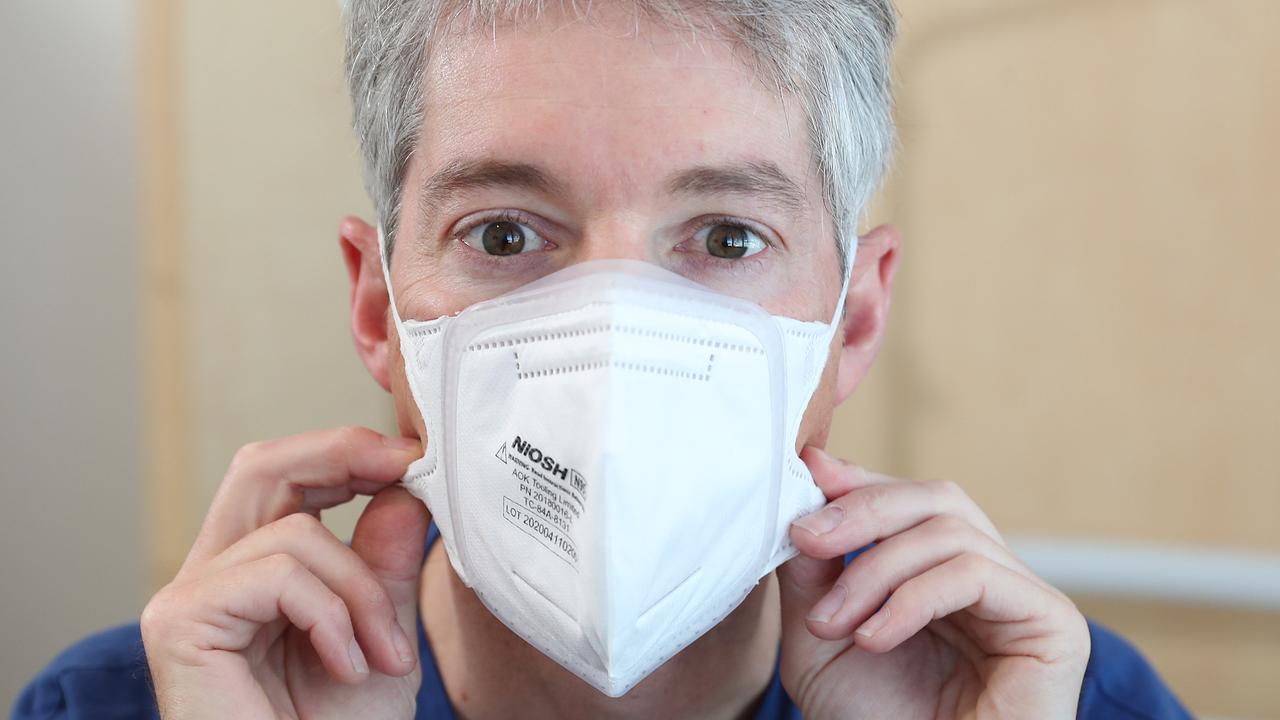Australia’s approach to airborne transmission of COVID-19 criticised as ‘negligence’
Australia is ignoring a crucial issue around its hotel quarantine system that may be putting people at unnecessary risk, one expert says.

Australia’s hotel quarantine program is under scrutiny as further COVID-19 leaks have led to more lockdowns amid claims of “negligence” in the country’s approach to airborne transmission.
Professor Michael Toole, an epidemiologist at the Burnet Institute who worked at the US Centres for Disease Control (CDC) for 10 years, believes authorities are not taking the risk of airborne spread seriously enough.
He has blamed the Infection Control Expert Group (ICEG), which issues advice on infection prevention and control issues, for not producing stricter guidelines.
Concerns were again raised this week after returned travellers managed to spread COVID-19 to others in hotel quarantine in Western Australia, sparking a three-day lockdown.
It was the second time this year the state has gone into lockdown after a quarantine leak.
NSW also confirmed a leak in a Sydney hotel after two families in adjacent rooms were found to have the virus last week. It follows an earlier leak in March when a security guard and another guest became infected.
The leaks saw WA Premier Mark McGowan request the number of returning travellers entering the state be halved, a move that he may want to make permanent, and Australia has now suspended flights from India.
While some on Twitter have defended Australia’s quarantine as being hugely successful despite the small number of leaks, Prof Toole doesn’t agree.
“14 leaks in 5 cities in 5 months is not just a few,” Prof Toole wrote on Twitter in response to a post from Dr Nick Coatsworth, who is advising the Morrison government on its COVID-19 response.
“It’s negligence and ICEG is responsible.”
In explaining his post, Prof Toole told news.com.au he was concerned ICEG had not recommended the use of N95 masks instead of surgical masks, and a national standard for ventilation in hotels had not been set.
“We are still denying at a federal level that this form of transmission even occurs, we don’t even say that it occurs rarely,” he said.
“This is at the heart of the fragmented approach of protecting guests.”
RELATED: Victoria to build quarantine facility at Mickleham

The approach to hotel ventilation among states can vary widely. Victoria has analysed every hotel room in its system to ensure they have “negative pressure”, which means air flows into hotel rooms when the door is opened, rather than outwards.
South Australia has also assessed its medi-hotel where COVID-positive patients stay, although other hotels haven’t been assessed. Western Australia did a ventilation audit but did not implement changes in time to prevent the latest leak.
It’s unclear whether other states have done ventilation audits.
Prof Toole said a national standard needed to be set between state, territory and federal governments about hotel quarantine.
“Our international borders are no longer airstrips, they are the hotel corridors,” he said.
“All nine governments should be pouring resources into this issue, this is our number one defence and we are spending billions on vaccines but not spending much on making sure our borders are safe.
“Don’t penny pinch, N95 masks are not exactly made of gold. There’s no shortage of them because we hardly have any patients in hospital so we just need to do it.”
However, infectious diseases expert Professor Peter Collignon, who is a member of ICEG, disagrees, and said airborne spread was not as significant as some people feared.
“If aerosol is the predominate way the virus is spread then surgical and cloth masks won’t work and it could spread really long distances, like 20 metres,” he said.
“This is not happening, the majority of the spread is happening among close contacts and masks seem to give protection.”
An ICEG statement issued in January about the emergence of more easily spread variants, acknowledged that contaminated air currents could have contributed to transmission of the virus associated with leaks in hotel quarantine.
It said airborne transmission was believed to mainly occur because of specific actions such as singing or heavy breathing during exercising, especially in poorly ventilated, crowded indoor settings.
ICEG recommended the use of face and eye protection but stopped short of specifying N95 masks.
RELATED: How did India’s COVID crisis get so bad?

Prof Collignon acknowledges there could be airborne spread but it is not a significant source of infection.
“Where is the evidence that if you are wearing a surgical mask and eye protection, that there has been any significant transmission to staff?,” he said.
Prof Collignon said no studies had shown N95 masks gave more protection than surgical masks in a real-world situation.
“If surgical masks are used correctly they are very effective,” he said.
“I agree good ventilation is a good idea and not having rooms with ‘positive pressure’ but most of the time when there have been infections, it’s because basic infection control hasn’t been followed.”
He said it was impossible to bring the risk of infection down to zero.
“I think NSW Health has shown you can make the risk very, very low if you follow the appropriate procedures.”
However, Prof Toole said authorities should be aiming for an 100 per cent effective strategy.
“Particularly as it’s a fragile time, an increasing number of travellers are infectious, there are new variants and we have low numbers of people vaccinated,” he said.
“We’ve had a bit of luck so far but what if the next person who is infected has a very high viral load and goes to a bar? You can get a superspreading event almost overnight.
“You can’t presume that every time there are a few cases, that that’s okay – that’s too high a risk in my opinion.”




